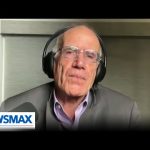New Yorkers woke up to a political earthquake after Zohran Mamdani’s upset victory in the Nov. 4 mayoral race, a win that makes him the city’s first Muslim mayor and caps a rapid rise from state assemblyman to the top job in Gotham. Voters handed Mamdani the mayoralty over former governor Andrew Cuomo and Republican Curtis Sliwa in a contest that underscored how radically the city’s Democratic coalition has shifted. This isn’t a trivia-note change of guard — it is a seismic realignment that will have budgetary and cultural consequences for years to come.
Across the boroughs, street-level reaction was raw and honest: some New Yorkers celebrated a fresh progressive voice, while many others voiced fear and skepticism about what a democratic socialist mayor will actually deliver. Local interviews captured on conservative outlets showed ordinary residents worried about taxes, public safety, and whether the city’s fragile post-pandemic recovery can survive another experiment in radical governance. These are not elite think-tank debates; they are people worrying about bills, commutes, and whether their neighborhoods will remain livable.
Veteran voices on the right reacted with alarm and blunt clarity, with former Mayor Rudy Giuliani telling Newsmax that the city’s hard-won improvements risk being “ruined” by Mamdani’s agenda and confrontational tone. Giuliani’s fury is not just nostalgia — it’s a warning that policies which sound good in campaign rallies can blow a hole in municipal finances and law enforcement morale when implemented. If New York becomes the testing ground for costly, unproven utopian schemes, hardworking taxpayers will be left to foot the bill and pick up the pieces.
Conservative Republicans from the region echoed that assessment, calling Mamdani’s triumph a disaster for mainstream Democrats and a signal that the party has embraced socialism in core urban strongholds. Lawmakers warned about the very real threats his platform poses: huge tax hikes on high earners and businesses, aggressive spending promises, and an approach to public safety that risks emboldening criminals rather than protecting victims. New York already struggles with affordability and crime; ideologues promising sweeping solutions risk making both problems worse.
On substance, Mamdani ran on an unapologetically progressive policy menu — rent freezes, a $30 minimum wage phased in, fare-free buses, expanded social programs, and higher taxes on corporations and the wealthy to pay for it. Those soundbites translate into massive fiscal commitments that will collide with reality when revenues fluctuate, pensions bite, and private investment flees to friendlier cities. The rhetoric of “affordability” and “justice” must be measured against arithmetic and experience; unchecked promises have a way of producing service cuts, higher debt, and a mass exodus of middle-class families.
Even some local politicians who normally vote Democrat responded with concern, warning that Mamdani’s victory reflects a political drift that will push New York further left and potentially accelerate families and businesses leaving the city. Those warnings aren’t partisan chest-beating — they’re observations about a competitive marketplace of talent and capital that does not reward instability or punitive taxation. Cities that deliver sensible public safety, predictable taxes, and strong schools will win the competition for residents and jobs; those that gamble on ideology risk long-term decline.
Conservatives and civic-minded New Yorkers should do more than shake their heads; they should make their voices heard in the weeks ahead by demanding transparency, fiscal prudence, and policies that put safety and opportunity first. If Mamdani’s administration wants to govern effectively, it must engage with skeptics, show its math, and prove that grand plans won’t collapse the very city they claim to uplift. The coming months will tell whether this is the start of real renewal or an expensive experiment that leaves everyday New Yorkers paying the price.




